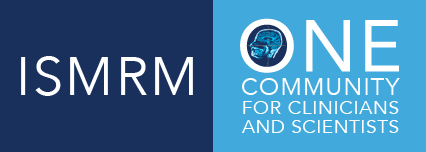By Mathieu Boudreau

This MRM Reproducible Research Insights interview is with Moritz Blumenthal and Martin Uecker, researchers at University Medical Center Göttingen in Göttingen, Germany, and Graz University of Technology in Graz, Austria. Their paper entitled “Deep, deep learning with BART” was chosen as this month’s Highlights pick because they shared code capable of reproducing the figures from the publication, and also integrated it into another open-source tool (BART).
To learn more, check out our recent MRM Highlights Q&A interview with Moritz Blumenthal and Martin Uecker.
General questions
1. Why did you choose to share your code/data?
The main purpose of this particular publication is to describe the deep learning implementation in BART, which is our open-source toolbox for image reconstruction. Sharing the code was therefore a natural choice. In general, we think that sharing code together with a publication is a way to generate more impact, as the hurdles to using and building upon your technique are significantly reduced.
2. What is your lab or institutional policy on sharing research code and data?
In our lab, we share almost all of our code and the data for each publication if possible. In fact, most of our code is integrated into BART. Together with our publications, we then share scripts, for preprocessing and post-processing the data, and the data itself, as long as it does not contain any confidential information about patients.
3. Are there any other reproducible research habits that you didn’t use for this paper but might be interested in trying in the future?
In an ideal world, the manuscript itself would be part of the reproducible pipeline. If we could simply start one script knowing that the result will be the ready-to-submit PDF, then we would be sure that everything relevant to the publication is contained in this reproducible pipeline.
4. How do you think we might encourage researchers in the MRI community to contribute more open-source content along with their research papers?
Sharing of code requires a substantial amount of additional effort and opens up your work to criticism. The incentives are therefore against sharing code, and this needs to change: this is a task for the community, which needs to value these research papers more.
Questions about BART and its Deep Learning Framework
1. What advice do you have for people who would like to get started with deep learning in BART?

We have a lot of tutorials on using BART, available at https://github.com/mrirecon/bart-webinars. These resources consist of Jupyter Notebooks and recordings of the webinars where they were presented. For those interested in the deep learning features we recommend taking a look at Webinar 6. For other questions, we have a mailing list where you usually get a response in a day or two.
2. BART has recently celebrated its 10th anniversary — could you share some of the lessons you’ve learned managing an open-source tool that’s widely used in the MRI community?
One lesson is that it takes a lot of time and effort to maintain an open-source project, and it can be a long time before this time and effort pays off. But in the end, it was worth it! Partly because integrating new methods into BART is a really useful way to preserve them. We can build directly on top of previously developed methods, and we found that this works much better with methods that were integrated directly into BART than with ones where the code was published as a separate project.

3. Could you share some resources/tutorials on how to use BART?
As mentioned in our reply to Question 1, there are our BART webinar tutorials and the mailing list. Additional resources are linked from the BART webpage: https://mrirecon.github.io/bart/.
4. What advice do you have for people who would like to contribute to BART?
Talk to us! We can give advice about what contribution makes sense, and what requirements need to be fulfilled so that we can later accept it into BART. It is also more fun to develop things as part of a community.




